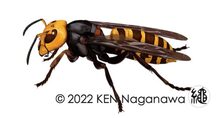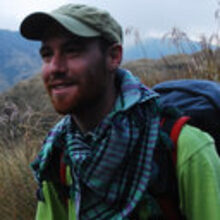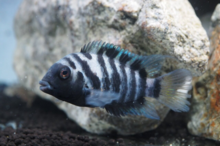Past Events
"Design of Deployable Structures Based on Geometry and Biomimetics" by Prof. Chisaki Kitajima from Kyushu Univ.
2026-01-26Guest Seminar by Bourguignon Unit.
Guest: Dr. Chisaki Kitajima, Assistant Professor, Faculty of Design, Kyushu University
Title: Design of Deployable Structures Based on Geometry and Biomimetics
Abstract
This research investigates deployable structures that can be compactly folded for transportation and storage and expanded to form spatial configurations. To address challenges such as material interference due to thickness, fabrication complexity, and construction safety, three fundamental operations—folding, cutting, and weaving—are identified and systematically applied as design strategies. Drawing on biomimetic principles inspired by insect hindwings and fungal net-like structures, the study develops geometry-based design models for each operation. By integrating geometry, biomimetics, and deployable design, this research demonstrates new possibilities for architectural deployable structures.
進化ゲノミクスユニット:ゲストセミナー
ゲスト: 北島千朔氏, 九州大学大学院芸術工学研究院人間生活デザイン部門助教
発表タイトル: 幾何学および生物模倣に基づく展開構造物の設計
要旨:
本研究は、運搬・収納時に小さく折りたたみ、展開によって空間を構成する展開構造物を対象とする。部材厚みによる干渉や施工の複雑性といった課題に対し、「折る」「切る」「編む」という三つの形態操作を整理し、それぞれに対応した設計手法を提案した。さらに、ハサミムシ後翅やキヌガサタケ菌網などの生物構造を模倣し、幾何学的条件に基づく設計モデルを構築した。これにより、展開構造物の新たな設計可能性を示す。
"Exploring Intracellular Symbiosis Through Cockroach Bacteriocytes: Histology, Vertical Transmission, and Single-cell Transcriptomics" by Mr. Tomohito Noda from Tokyo University
2025-04-21Tomohito Noda
Ph.D. student The University of Tokyo, Graduate School of Science, Department of Biological Sciences
Fukatsu Lab at the National Institute of Advanced Industrial Science and Technology
Abstract: Intracellular symbiosis, in which a host organism harbors a microbial symbiont within its cells, has been widely observed across diverse lineages. This phenomenon is intriguing not only within the context of individual symbiotic relationships, but also more broadly, as the origins of mitochondria and chloroplasts are thought to trace back to microorganisms that were incorporated into host cells. Therefore, the study of intracellular symbiosis may provide insights to the understanding of a crucial trigger for the acquisition of novel biological functions and evolutionary modifications. Despite the wide interest in intracellular symbiosis, the mechanisms and adaptations required to harbor microbial symbionts remain largely elusive. One contributing factor is that the majority of symbiotic organs are highly specialized and distinct from the rest of the body, and thus lack a clear “non-symbiotic” subject to compare with.
Guest Seminar: Preserving Nature's Treasures: Biodiversity Conservation, Species Discoveries, and World Heritage Nomination in Mindanao
2025-01-22Title: Preserving Nature's Treasures: Biodiversity Conservation, Species Discoveries, and World Heritage Nomination in Mindanao
By Prof. Dr. Alma B. Mohagan from Central Mindanao University in Philippines
Towards holistic insect monitoring by accelerating species discovery, description, and identification using robots, nanopore sequencing, and Artificial Intelligence
2024-11-05Seminar by Prof. Rudolf Meier from Humboldt Universitat zu Berlin
https://www.museumfuernaturkunde.berlin/en/user/2072
Abstract:
Biodiversity science often overlooks hyperdiverse insect clades, despite their critical ecosystem services. To illustrate this, I show that over half of the flying insect diversity in many samples is concentrated within 20 family-level clades, regardless of sampling location. By comparing species richness in bulk samples with the number of described species, I highlight how little is known about these clades, leading to the conclusion that new approaches to species discovery and the taxonomy of “dark taxa” are essential. At the Center for Integrative Biodiversity Discovery at the Natural History Museum Berlin, we envision a future where specimen handling and imaging are largely automated, specimens are sorted into putative species using nanopore barcodes, and species descriptions combine molecular and morphological data in a semi-automated process. I will demonstrate how this approach can transform a "dark taxon" like fungus gnats in the Mycetophilidae family from largely unknown in regions like Singapore to sufficiently well-documented for biomonitoring. Finally, I will discuss how images of common species could then be used to use train AI algorithms for a future where many specimens will be identified by images only.
Seminar by Evolutionary Genomics Unit: Mature larvae continue calling at night in Vespa mandarinia
2024-07-16Speaker: Dr. Haruna Fujioka, Assistant Professor of Okayama University
岡山大学 藤岡春菜 助教授 (個人HP)
社会性昆虫、 昆虫生態学、動物行動学、時間生物学
Vespa hornet larvae produce a rhythmic 'rasping' sound by rubbing their mandibles against the cell wall of the nest. The call is thought to be a larval provisioning cue. However, detailed observation of larval calls has been limited to a few species, and it is not known whether the call can be influenced by the external environment or internal larval states such as hunger. We conducted laboratory observations of larval calls to investigate the effect of 1) larval stage, 2) daily variation, and 3) larval hunger level. Vespa mandarinia larvae produced sounds independent of light conditions, time of day, worker absence, and hunger level. A key finding of this research is the novel discovery that larvae produce sounds at night, a previously undocumented behavior.
Insights into the onset of African Miombo woodlands & Exploring diversification tempos and evolutionary histories from African rain to montane forests
2023-11-06Zoom link: https://oist.zoom.us/j/98425990760?pwd=VUlWc1F5ei9Qc0pyQzVtQ3p1OTV1Zz09
Meeting ID: 984 2599 0760, Password: 590538
Title 1: Insights into the onset of African Miombo woodlands: Phylogenomics of the keystone genus Brachystegia (Fabaceae, Detarioideae) by Dr. Arthur F. Boom
from Royal Museum for Central Africa (Biology Department, Section Vertebrates, Tervuren, Belgium)
Title 2: Exploring diversification tempos and evolutionary histories from African rain to montane forests by Dr. Jérémy MIGLIORE from Muséum départemental du Var, Toulon(FRANCE)
Functional heterogeneity: relationship between group performance and individual behavioural differences
2023-08-17By Prof. Isaac Planas-Sitjà from Department of Biological Sciences, Tokyo Metropolitan University (https://www.researchgate.net/profile/Isaac-Planas)
Zoom Link:
https://oist.zoom.us/j/95993904953?pwd=MEZpZk1uVGxJQUxGZnpyOEoxbVVKUT09
Meeting ID: 959 9390 4953
Passcode: 782775
Abstruct:
Animals face daily decisions, such as where to forage or nest, which can be critical for their fitness. In social animals, these decisions are complicated by a potential conflict of interests among group members, which nonetheless must collectively reach some form of agreement if the group is to remain together. Insects have been model organisms to study collective behaviour and advance our understanding of mechanisms leading to optimal and successful decisions. While it is clear that there are no two identical individuals, a debate still exists on whether heterogeneity of behaviour among group members could improve, or not, group performance. In fact, the question of how identical or dissimilar units, with same average properties, give rise to different collective processes goes beyond behavioural ecology. During this talk, I will introduce some of the mechanisms involved in collective behaviour (e.g., information sharing, social feedback and social interactions), and discuss how these mechanisms coupled with individual differences can lead to more accurate decisions, from gregarious to eusocial insects.
Seminar: From alpine beetle populations to Cretaceous moth radiation: can we connect the dots between microevolution and macroevolution?
2023-06-12Abstract
Population genetics and phylogenetics are two main subfields of evolutionary genetics. The former investigates the genetic variations among populations within a species while the latter focuses on reconstructing phylogeny of many species using genetic data. In this presentation, I will present my previous work on the population genetics of an alpine ground beetle, Nebria ingens complex, in the Sierra Nevada in California and my current work on the deep evolutionary history of species radiation of Lepidoptera. In the alpine ground beetle study, I used genome-wide variants to characterize the population structure and demographic history. I found that the glacial refugia was in the low-elevation drainage basins of Sierra Nevada during the last glacial maximum, followed by the postglacial recolonization to the current high-altitude alpine zone. I also used genome-wide association approaches to identify the genes putatively associated with the postglacial elevational range shift, local adaptation to the heterogeneous environments, and the morphological variations. For the study of Lepidoptera species radiation, I use published high-quality lepidopteran genomes to explore the genomic evidence related to rapid diversification of modern lepidopteran lineages. The preliminary results suggest that the gene evolution involving host plant detection, phytocompound detoxification, and protein digestion play crucial roles in species diversification along with the Angiosperm radiation. Finally, I will provide my personal perspective on connecting population genetics (microevolution) and phylogenetics (macroevolution) for a more thorough understanding of evolutionary processes.
About Dr. Yi-Ming Weng:
Yi-Ming was born and brought up in Taiwan. He graduated from National Chung-Hsing University for bachelor’s and master’s degrees in Entomology department. He is interested in insect biodiversity and evolution in general. For his master thesis, he studied phylogeography of alpine ground beetles in Taiwan, looking for sharing evolutionary history between the alpine ground beetle species with similar ecological niche and geographical distribution. Yi-Ming started his PhD carrier in the University of Wisconsin-Madison in 2017. He worked with Professor Sean Schoville to further study the evolutionary history of alpine ground beetle from the Sierra Nevada in California using genomic data. By the time he started to develop his skillsets in bioinformatics and genomics. Now Yi-Ming is working with Professor Akito Kawahara in the University of Florida as a postdoctoral researcher studying evolutionary genomics of Lepidoptera.
Despite Yi-Ming has been working mostly with computers for his bioinformatics analyses, he is most interested in outdoor activities and direct observation of insects. He believes that good biological questions usually come from the field, and stepping out to touch the insects gets the best inspiration.
Seminar: Cichlid fishes as a model for evolution of altruism in vertebrates
2023-05-29We are inviting Dr. Shun Satoh from Kyoto University who calls himself as a "Fish Maniac" in his blog.For his details please check the link below. https://symphysodondiscus.wixsite.com/website-1/blank-3
Date: May 29th(Mon)
Time: 15:00* -
Room: C209 (Center Bldg)
*The start time has been updated as of May 19th. sorry for the inconvenience.
Zoom Link:
https://oist.zoom.us/j/94360778822?pwd=ZDlPZFY2d3luQWovcUdLZ1lvbGdpQT09
Meeting ID: 943 6077 8822
Passcode: 705537
If you have any questions, please contact egu@oist.jp.
Evolutionary Genomics Seminar Vol.1_Mysterious mating behavior of a subsocial wood-feeding cockroach: female and male eat their wings one another, presented by Haruka Osaki, Postdoc at Kyoto University
2022-08-05Seminar by Haruka Osaki, Postdoc at Kyoto University
Date: August 5th
Time: 3pm - (30-40 mins Lecture and 10-20mins QA session)
Zoom: Meeting:
https://us04web.zoom.us/j/
For questions please contact: egu@oist.jp








